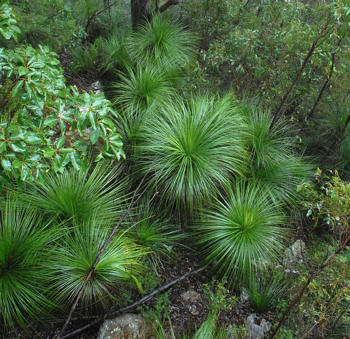"We do not err because truth is difficult to see. It is visible at a glance. We err because this is more comfortable." - Alexander Solzhenitsyn
What do we know? It can be a difficult question to ask, and a painful question to answer honestly, because our comfortable lives depend so much on not knowing, or rather on not paying attention to our existing knowledge. The Ogham few "Phagos" and its associated tree, the Beech, speak to this question:
 |
| Phagos - a few of learning and guidance |
Work put off, things left unsaid and unexamined personal issues are things we usual ignore or avoid, rather than being simply unknown to us. Like repressed memories, they wait, sometimes quietly, sometimes not, for the moment when we are ready to say "I know this", and to take appropriate action. In some instances the avoided knowledge carries perilous consequences, and not always only for the individual.
| Fagus - the Beech Tree |
We know, for example, that climate chaos (or "global weirding", to suggest another interesting label) is being caused by the burning of fossil fuels. The obvious course of action for people concerned about the suffering caused by this phenomenon is to stop the burning of fossil fuels. And yet nearly without exception we focus not on what we know, but on any scheme or theory that can serve as a distraction or a barrier to truth. Lies such as the usefulness of clean coal, carbon trading and household recycling as serious responses to increasing climate chaos serve this purpose. Derrick Jensen explains:
"In order for us to maintain our way of living, we must tell lies to each other, and especially to ourselves. It’s not necessary that the lies be particularly believable, but merely that they be erected as barriers to truth. These barriers to truth are necessary because without them many deplorable acts acts would become impossibilities. Truth must at all costs be avoided." (A Language Older Than Words)
So much of our alternative culture and spirituality is aimed at seeking new ideas, new sources of guidance and wisdom, or rediscovering old sources. But we do not need a new voice, or an old one, to tell us what we already know. Perhaps, just as conservation and efficiency should come before installing renewable energy sources, we should look to what we already know for guidance before seeking additional information.
---
Follow this link for another beautiful photo of a Beech tree, which I wasn't able to include in this post.
For more on the political implications of this post, see "Expect Resistance"

No comments:
Post a Comment